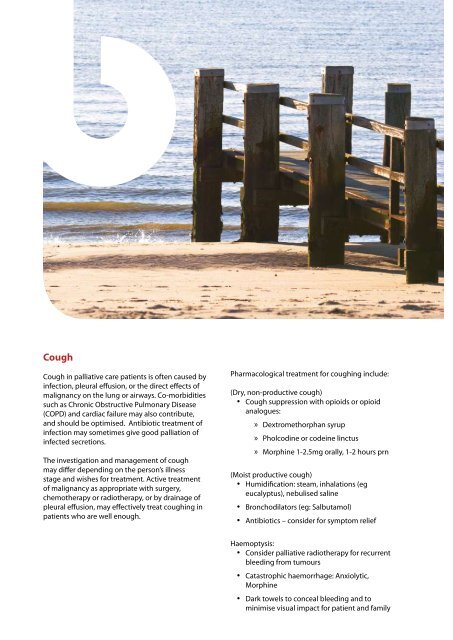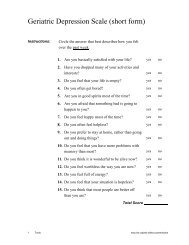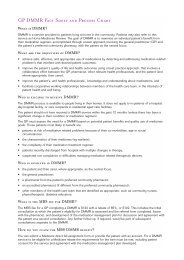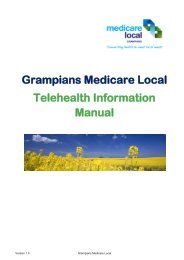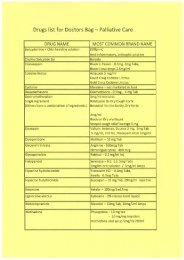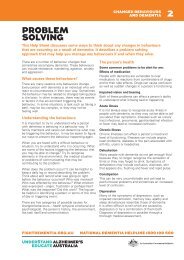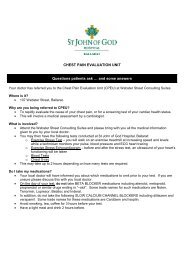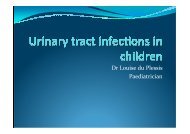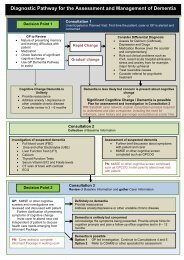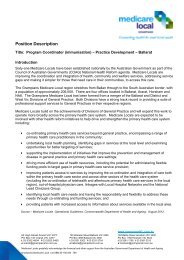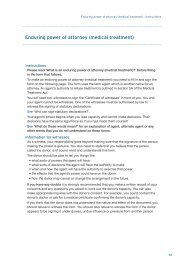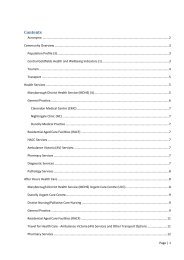Doctor's Bag: Palliative Care Information booklet - Grampians ...
Doctor's Bag: Palliative Care Information booklet - Grampians ...
Doctor's Bag: Palliative Care Information booklet - Grampians ...
Create successful ePaper yourself
Turn your PDF publications into a flip-book with our unique Google optimized e-Paper software.
Cough<br />
Cough in palliative care patients is often caused by<br />
infection, pleural effusion, or the direct effects of<br />
malignancy on the lung or airways. Co-morbidities<br />
such as Chronic Obstructive Pulmonary Disease<br />
(COPD) and cardiac failure may also contribute,<br />
and should be optimised. Antibiotic treatment of<br />
infection may sometimes give good palliation of<br />
infected secretions.<br />
The investigation and management of cough<br />
may differ depending on the person’s illness<br />
stage and wishes for treatment. Active treatment<br />
of malignancy as appropriate with surgery,<br />
chemotherapy or radiotherapy, or by drainage of<br />
pleural effusion, may effectively treat coughing in<br />
patients who are well enough.<br />
Pharmacological treatment for coughing include:<br />
(Dry, non-productive cough)<br />
• Cough suppression with opioids or opioid<br />
analogues:<br />
»» Dextromethorphan syrup<br />
»» Pholcodine or codeine linctus<br />
»» Morphine 1-2.5mg orally, 1-2 hours prn<br />
(Moist productive cough)<br />
• Humidification: steam, inhalations (eg<br />
eucalyptus), nebulised saline<br />
• Bronchodilators (eg: Salbutamol)<br />
• Antibiotics – consider for symptom relief<br />
Haemoptysis:<br />
• Consider palliative radiotherapy for recurrent<br />
bleeding from tumours<br />
• Catastrophic haemorrhage: Anxiolytic,<br />
Morphine<br />
• Dark towels to conceal bleeding and to<br />
minimise visual impact for patient and family


